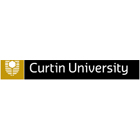Master of Arts (Fine Art)
Master of Arts (Fine Art)
The Fine Art major draws upon the diverse and complex traditions of fine art, and calls for a high degree of self-discipline, a capacity for self-criticism, and an awareness and dedication to the demands of being a professional artist. In this course, you will focus on creating works that contribute…
Categories
COURSE DESCRIPTION
The Fine Art major draws upon the diverse and complex traditions of fine art, and calls for a high degree of self-discipline, a capacity for self-criticism, and an awareness and dedication to the demands of being a professional artist.
In this course, you will focus on creating works that contribute to the artistic, aesthetic and social needs of contemporary society.
In your second year, you’ll undertake a major project and may have an opportunity to practice your skills and develop your portfolio through an internship with a professional organisation.
The Fine Art major is offered as part of the Master of Arts, a hands-on course with a strong practical and industry focus, to prepare you for a career in creative practice.
Career information
This course can help you become a:
Artist
Craftsperson
Careers for artists span a wide range of employment fields, such as:
Individual or collaborative arts or crafts practice
Public art
Curating
Graphic design
Textiles
Illustration
Web design
Museum design
Theatre
Community arts
Arts administration at national, state, regional and commercial galleries.
What you’ll learn
Understand the discipline of a selected field in the Arts, its theoretical underpinnings, ways of thinking and professional or creative approaches; understand and apply established knowledge, principles, and professional or creative practices in chosen aspects of the Arts
Apply logical and rational processes to analyse the components of a subject or project and engage critically with the subject matter to respond creatively within a selected communication paradigm
Determine what information is needed and where it might be found using appropriate technologies; make valid judgements and synthesise information from a range of sources and apply best practice in developing a professional or creative work in response to a particular situation
Communicate appropriately with colleagues, professional and creative contacts and the general public and develop communication skills across one or more media forms appropriate to varying situations
Assess the application of existing technologies as well as the impact of emerging technologies on a selected communication or media discipline to create an effective professional or creative work; develop the technology skills necessary for obtaining, assessing and representing relevant information. Decide on appropriate applications and systems for professional and/or creative needs
Understand and apply a range of learning strategies; take responsibility for one’s own learning and development; sustain intellectual curiosity and develop a commitment to professional research, publication or performance to engage with emerging forms of theory and practice in the Arts
Think globally and consider issues from a variety of perspectives and apply relevant international standards, tools and practices to one’s professional or creative practice
Acknowledge the interrelationship between local, national, and global perspectives and the impact of these the Arts: recognise individual human rights, and appreciate the importance of cultural diversity and the sensitivities which may be created when engaging with and representing issues pertaining to ethnic and community groups
Demonstrate professional behaviour and standards and work collaboratively to apply them in all aspects of creative practice and production-related activities.
REQUIREMENTS
Applicants must satisfy the following criteria to qualify for one of our postgraduate coursework programs: Completed a bachelor degree awarded by a recognised tertiary institution. Some postgraduate courses may require a completed bachelor degree in a relevant field.
Certificate in Advanced English (CAE): Grade C; and Pearson Test of English Academic: 60. IELTS Academic (International English Language Testing System): Writing, Speaking, Reading, and Listening: 6.0; Overall band score: 6.5; TOEFL (Test of English as a Foreign Language): 79 Overall; Reading 13 Listening 13 Speaking 18 Writing 21.
EDUCATIONAL INSTITUTION
Curtin University is Western Australia’s largest and most culturally diverse university with Australia’s third largest international student population. Around 60,000 students from more than 130 countries study a Curtin degree, at locations including Perth, Margaret River, Kalgoorlie, Sydney, Malaysia and Singapore. Our cultural diversity adds a rich and valuable dimension to the campus atmosphere, preparing all graduates to live and work effectively in an increasingly global environment. We offer a range of industry-aligned undergraduate and postgraduate courses in business, humanities, health, engineering and related sciences. We also have a long-standing focus on Aboriginal and Torres Strait Islander education and culture, supported by our Centre for Aboriginal Studies.Curtin is widely recognised for its practical research that is focused on solving timely, real-world problems. In recent years our research activity has grown significantly, driving our rapid rise up the international university rankings.As a university that never settles, we will continue to develop existing partnerships and establish new ones in areas relevant to our research and teaching.




